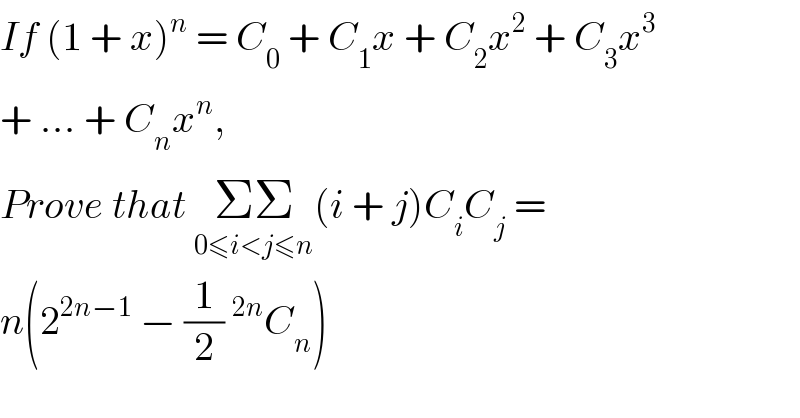
Question Number 22739 by Tinkutara last updated on 22/Oct/17

$${If}\:\left(\mathrm{1}\:+\:{x}\right)^{{n}} \:=\:{C}_{\mathrm{0}} \:+\:{C}_{\mathrm{1}} {x}\:+\:{C}_{\mathrm{2}} {x}^{\mathrm{2}} \:+\:{C}_{\mathrm{3}} {x}^{\mathrm{3}} \\ $$ $$+\:...\:+\:{C}_{{n}} {x}^{{n}} , \\ $$ $${Prove}\:{that}\:\underset{\mathrm{0}\leqslant{i}<{j}\leqslant{n}} {\Sigma\Sigma}\left({i}\:+\:{j}\right){C}_{{i}} {C}_{{j}} \:= \\ $$ $${n}\left(\mathrm{2}^{\mathrm{2}{n}−\mathrm{1}} \:−\:\frac{\mathrm{1}}{\mathrm{2}}\:^{\mathrm{2}{n}} {C}_{{n}} \right) \\ $$
